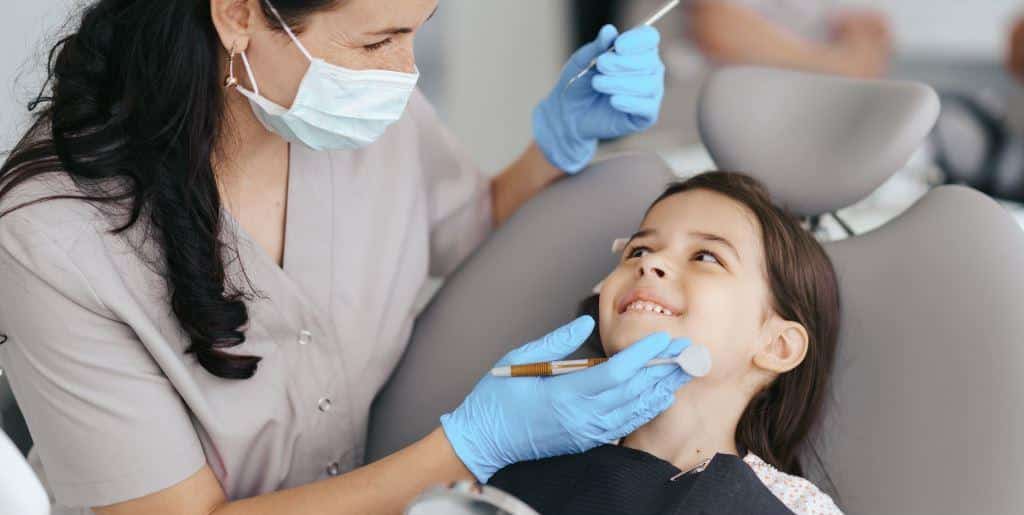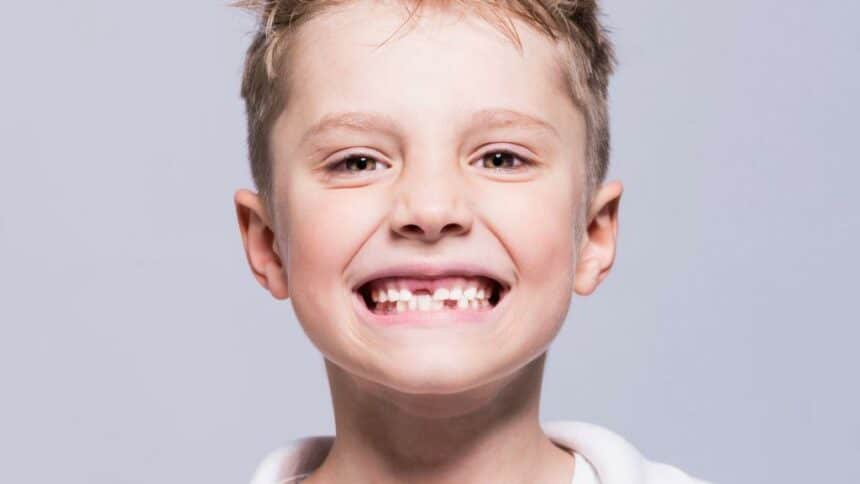Did you know that grinding can often occur during the eruption of the first baby teeth? This is often a harmless phenomenon that passes after a while, but unfortunately in some cases it is a signal that something is wrong with the child's organism. Read our article to find out more about gnashing teeth in children.
Causes of teeth grinding in children
This is often associated with immaturity of the nervous and muscular systems. In that case, you have nothing to worry about. Don't ignore it, however, as there can be many causes of bruxism in children.
One of these may be stress, resulting from, among other things, a change in environment. If you know what might be causing your child to have this unpleasant reaction, try to eliminate it. Stress is not only debilitating for the adult body!
Bruxism can also be exacerbated when a child has difficulty breathing through the nose. When exhaling, the mandible protrudes, leading to rubbing of the teeth. It is worth watching your child's breathing - if it is abnormal, the whole body will suffer the consequences!
Teeth grinding also affects children with ADHD or on the autism spectrum. It is not uncommon for this to be one of the first clues to diagnosis. Allergies or vitamin deficiencies are also common causes of bruxism.

What consequences does this have?
In the first years of life, if it is not compulsive, teeth grinding in children has no major consequences. Remember, however, that untreated bruxism can cause teeth to wear down. They become uneven and hypersensitive.
The consequences of teeth grinding in children can also include cracking of the teeth caused by their loosening. With bruxism, over-clenching of the jaw is also common, resulting in bleeding gums. What causes bleeding gums and how exactly to treat this is described in our article "Bleeding gums - causes and treatment".
When teeth grinding in children becomes pathological and compulsive it can even lead to malocclusion. This has a negative impact on the toddler's smile and aesthetics, and therefore on their self-esteem in the future. Let us not forget that there can also be serious dental problems involving long-term and costly treatment.
To avoid them, it is worth ensuring that you visit your dentist regularly. We recommend using an adaptation visit as soon as your child has their first tooth. The dentist will get to know the little one and show him or her the dental surgery. This will ensure that the child is not stressed in the future and does not develop dentophobia. This visit format is available in our practice.

How to treat teeth grinding in children?
The treatment of teeth grinding in children should start with a visit to a specialist. He or she will determine what is causing it and will then be able to advise on the appropriate steps to eliminate the problem.
Sometimes it will be to ensure an evening ritual during which the child will have a chance to relax. As we know, bruxism most often occurs at night, so a warm bath or reading a book together can be very helpful!
If malocclusion is the culprit, an orthodontist will help. This orthodontist will fit special relaxation splints to protect the teeth from abrasion.
Remember - if it is not a pathological problem, grinding of teeth in children will probably disappear when the last milk tooth falls out. However, if it bothers you in any way, do not hesitate to see your dentist and psychologist. Bruxism is still an unexplored condition whose underlying cause can be very complex.
To learn more about this problem (not only in children), read our article: "Bruxism, or teeth grinding - where does it come from and how to get rid of it?".

